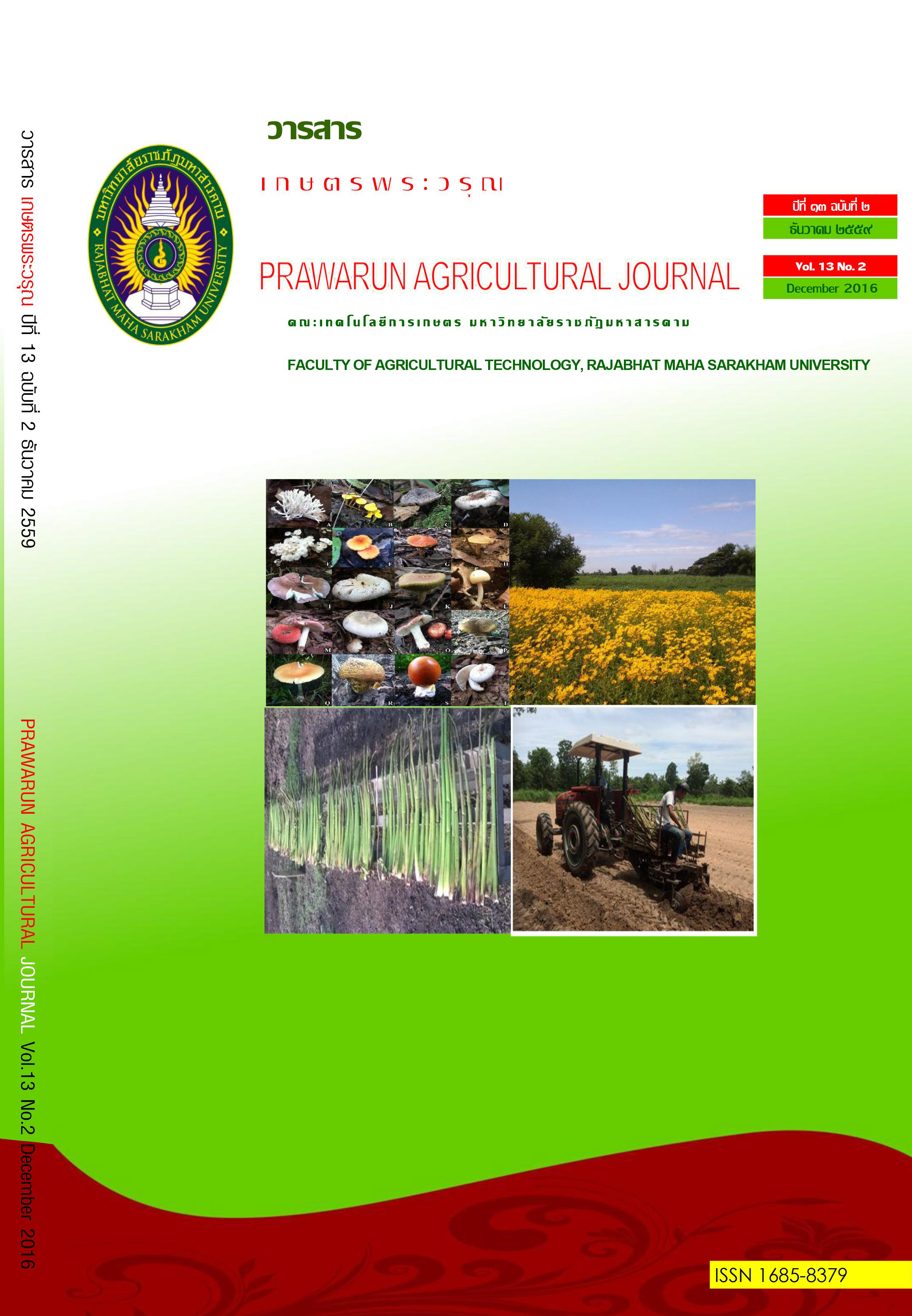ผลของไลโซเลซิตินในอาหารต่อประสิทธิภาพการย่อยสารอาหาร และการเจริญเติบโตของปลานิล
Main Article Content
บทคัดย่อ
การเสริมไลโซเลซิตินระดับต่างๆคือ 0.0125, 0.0250 และ 0.0375 เปอร์เซ็นต์ในสูตรอาหารปลานิลที่มีการลดระดับโปรตีนลง 1 เปอร์เซ็นต์โดยมีระดับโปรตีน 29 เปอร์เซ็นต์เปรียบเทียบด้วยอาหารควบคุมที่มีระดับโปรตีน 30 เปอร์เซ็นต์ไม่เสริมไลโซเลซิตินทำการอนุบาลปลานิลน้ำหนักเฉลี่ย 4.15 + 0.10 กรัม / ตัวให้อาหารวันละ 2 ครั้งแบบเต็มอิ่มเป็นเวลา 6 สัปดาห์พบว่าการเสริมไลโซเลซิตินที่ระดับ 0.0250 เปอร์เซ็นต์ทำให้ปลานิลมีสัมประสิทธิ์การย่อยได้ (67.61 3.44) ประสิทธิภาพการย่อยโปรตีน (79.54 + 2.17) และมีกิจกรรมของเอนไซม์ไลเปส (0.84 +0.05) ดีที่สุด (p <0.05) การเสริมไลโซเลซิตินทุกระดับทำให้ปลามีการเจริญเติบโตไม่แตกต่างทางสถิติเมื่อเทียบกับชุดควบคุม (p> 0.05) และการเสริมที่ระดับ 0.0250 เปอร์เซ็นต์พบว่าอัตราแลกเนื้อและประสิทธิภาพการใช้โปรตีนมีค่าที่ดีขึ้นและไม่แตกต่างจากปลาที่ได้รับอาหารชุดควบคุมนอกจากนี้ทุกชุดการทดลองมีค่าโปรตีนสะสมในตัวปลาและปริมาณไขมันสะสมในช่องท้องที่ใกล้เคียงกัน (p> 0.05) แต่การเสริมที่ระดับ 0.0250 เปอร์เซ็นต์ปลานิลมีค่าดัชนีดับที่สูงขึ้นอย่างมีนัยสำคัญอย่างไรก็ตามการเสริมไลโซเลซิตินที่ระดับ 0.0250 เปอร์เซ็นต์สามารถเสริมในอาหารที่มีการลดระดับโปรตีน 1 เปอร์เซ็นต์ในสูตรอาหารสามารถช่วยให้ปลาเจริญเติบโตดีและส่งผลทำให้ประสิทธิภาพการย่อยโปรตีนและประสิทธิภาพการใช้โปรตีนเพิ่มสูงขึ้นและเป็นแนวทางในการช่วยลดต้นทุนการผลิตอาหารปลาได้อีกด้วย


